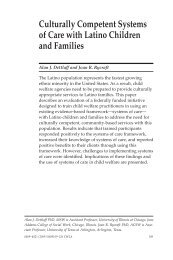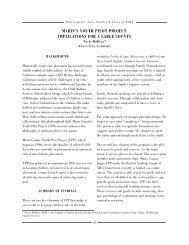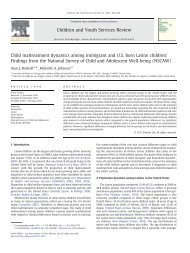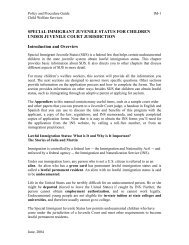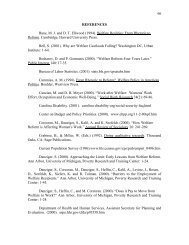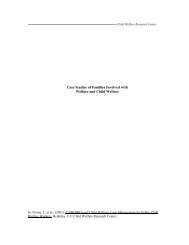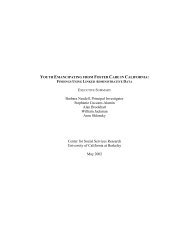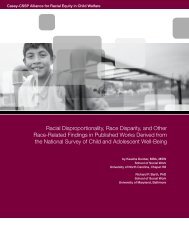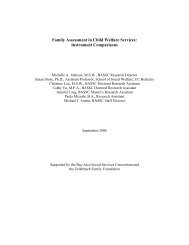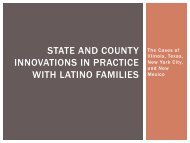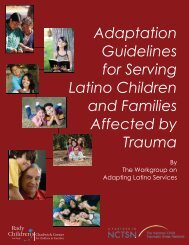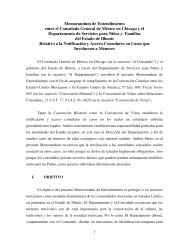Developing a Self-Assessment Toolfor Culturally - Office of Minority ...
Developing a Self-Assessment Toolfor Culturally - Office of Minority ...
Developing a Self-Assessment Toolfor Culturally - Office of Minority ...
You also want an ePaper? Increase the reach of your titles
YUMPU automatically turns print PDFs into web optimized ePapers that Google loves.
options for each instrument item suggesting how various strategies and practices could beconsidered CLAS. The items themselves provide examples and ideas on which to buildand improve service provision and quality <strong>of</strong> care.1.5 COLLABORATIVE PROCESS WITH TWO ADVISORY GROUPSThis project was guided by two distinct advisory groups. The project team and OMHconvened an advisory group meeting with the members <strong>of</strong> the Project Expert Panel (PEP)and the Federal Project Advisory Group (PAG) to inform the development <strong>of</strong> the tool. ThePEP was comprised <strong>of</strong> nine representatives who have expertise in at least one <strong>of</strong> thefollowing areas: service provision in LPHAs, cultural competency, health care quality, andsurvey research and evaluation. Members <strong>of</strong> the PAG included four representatives fromDHHS divisions with responsibility for government policies and programs related to healthcare services, and more specifically, services for diverse populations. While PEP membersrepresented varied expertise and “real-world” experience, PAG members represented a fullrange <strong>of</strong> governmental interests. Together the advisory bodies guided the development <strong>of</strong>the CLAS self-assessment tool. Appendix A contains a membership list for both <strong>of</strong> theseadvisory bodies.COSMOS Corporation, December 2003 1-7



